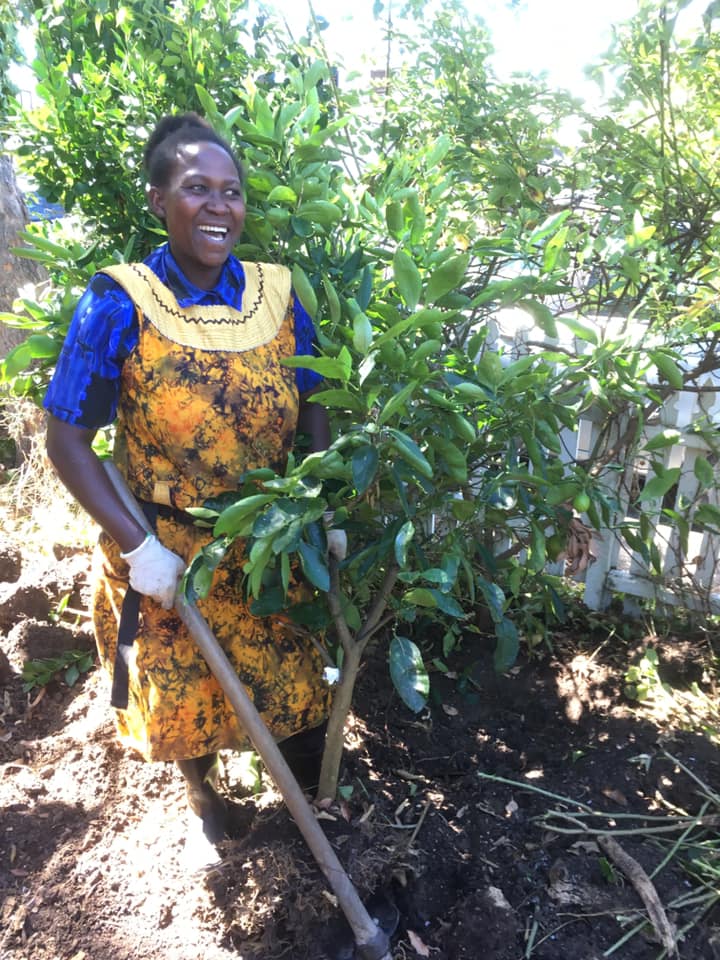The Morningside Urban Market Garden
Nestled at the end of a quiet cul de sac in the heart of Morningside is a space that was once an active bowling green, with well-trodden AstroTurf still covering the field.
It’s no longer a meeting place for the Edendale bowling community, but 5 Cabbage Tree Swamp Drive is still very much home to a thriving community.
The green was recently leased to the Gribblehirst Community Hub, who have set up the clubrooms as a space for creative collaboration, workshops, and other community-focused initiatives. The idea is to transform the unused space into one that fosters growth, empowerment, and a sustainable future.
The abandoned bowling green has been converted in to an urban garden, maintained by refugee women. It’s the brain child of the Morningside Urban Garden Market (MUMG) initiative, a collaborative effort of several not-for-profit organisations including Positive Women, New Zealand Red Cross, Belong Aotearoa, Catalyse, Kai Collective, Crave, and KIND.
The team originally planned to build the garden directly into the soil under the AstroTurf, but found toxic conditions lurking under there. Deciding the only way was up, they sourced discarded apple crates and built self-watering raised garden beds.
Social enterprise cafes Crave and KIND aren’t only backing the scheme but are direct beneficiaries of the garden’s yield. Micro greens and edible flowers grown in the garden are sold directly to the cafes.
Produce from the garden is about as locally-sourced as it gets. Using garden ingredients cuts out the middle man, environmental costs of transport and packaging, unnecessary waste of damaged or “ugly” produce, and any doubt around how the plants have been grown.
For KIND, the initiative perfectly supports its philosophy of being kind to others, kind to the earth, and kind to our bodies. “Ingredients from the garden have a minimal carbon footprint, given they come from just around the corner,” says KIND’s Cathie Cottle. “We know where the food is from, we know what’s been used on it, and we know it’s organic –all of these aspects are important to us.
The initiative also aligns with KIND’s value of being kind to people, by empowering refugee women into an industry where they can make a small profit. “The women not only make profit from the produce but also learn the skills to grow food in their own homes and perhaps eventually run a business that grows, sells, and teaches others,” says Cathie. “It has an amazing flow-on effect.”
Two of Gribblehirst’s co-founders, Jason Dodunski (from KIND) and Denise Bijoux, came up with the idea for MUMG.Both are part of many community and sustainability-based initiatives, and they couldn’t bear the sight of a space in their hood not being used. Jason, who seems to have more pies than fingers to put in them, is the founding member of Kai Collective as well as several other community garden projects. This makes him the perfect person to set up the MUMG gardens and provide education and support for the women.

Jason’s career in hospitality triggered his passion and consequent learning around all things food –“where it comes from, what it does, and its impact on the earth”. He’s spent the past six years learning about food through research and experience working for Love of Bees, Pakaraka Permiculture, Robuck Farm, Kingsland community gardens,and his own Kai Collective. He’s looking forward to expanding his knowledge through the expertise of refugees from countries such as Afghanistan and Egypt, who have experience in growing food in harsh conditions.
MUMG is an initiative for the community that is created and maintained by the community and, now, fully funded by the community. MUMG is supported through individuals and businesses including Bunnings Grey Lynn, Auckland Rugby Academy, Auckland Council Waste Gardens for Health, and Eco Matters.
The garden is still in need of a few more hands (and trowels, gloves and winterproofing…). On Wednesday evening, MUMG invites the community to join in on the mahi, learn about permaculture, and bring a plate for a shared meal.
Cathie knows from working closely with the community that “many people are looking for things to be a part of. Lots of people are sitting on amazing skills and talents with no outlet.”
If time is not in abundance, any unwanted gardening equipment or tools would be warmly welcomed. There’s also an opportunity to “sponsor a bed”, or donate to the Morningside Urban Market Garden’s Give-a-little page.